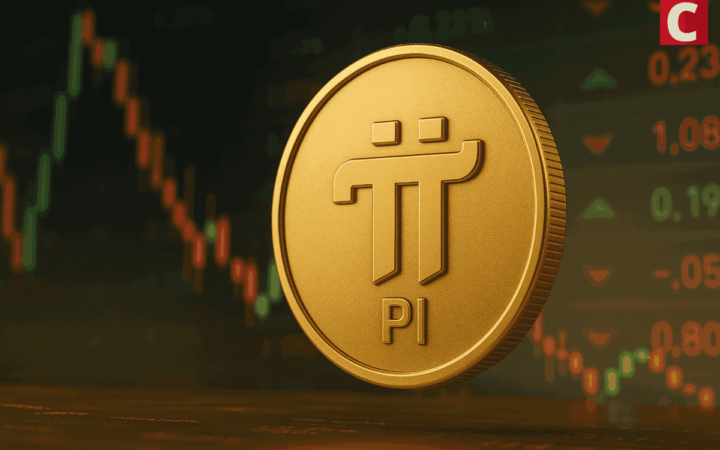The Dutch government took direct control of Nexperia after months of rising pressure over who controls a key supplier to Europe’s automotive sector, according to Bloomberg reporting.
Vincent Karremans, who has only been overseeing Dutch economic policy in a caretaker capacity for a little over three months, used emergency powers to remove Chinese influence from the company.
The move placed the Netherlands at the center of a geopolitical fight involving Beijing, Washington, and major European car manufacturers that depend on steady chip supplies.
Karremans acted after warnings that the company’s ownership structure was becoming a risk to Europe’s manufacturing stability, and that internal decisions made by Zhang Xuezheng threatened to shift crucial operations out of Europe.
Beijing responded by blocking the Chinese factory that handles part of the production workflow for Nexperia, disrupting the normal supply chain that sends components from Europe to Asia and back again.
Automakers in Europe and Japan were told they might soon face reduced deliveries. European factories are now preparing for possible production halts if the situation is not resolved in days.
The timing could not be worse, with industries already strained by weak consumer demand, higher costs, and pressure from shifting global trade rules under President Donald Trump’s administration.
Karremans moves to block Wingtech control
Karremans gained the authority to intervene when he invoked the 1952 Goods Availability Act.
The law had never been used before. It allows the Dutch government to override company decisions if the continuity of supplies essential to the national economy is at risk. After filings in an Amsterdam court, Zhang was formally removed from his role on October 7.
Karremans said the action was needed because Zhang “was secretly working behind our backs to relocate the company abroad.”
Zhang had already dismissed three senior figures in the Netherlands and had approved around $130 million in questionable internal transactions linked to a firm he also controlled.
A spokesperson for Nexperia said, “We hope this matter can be de-escalated soon, in the benefit of all parties involved.”
But Chinese officials reacted sharply. During a phone call with Karremans, China’s commerce minister Wang Wentao said that the takeover had “seriously affected” the stability of global supply chains.
Beijing sees Wingtech, the parent company, as part of its long-term plan to grow industries in which it wants to hold global influence. Many sectors in China, including electric vehicles and robotics, rely on the type of chips produced by Nexperia.
The significance of the company lies in its volume. Nexperia manufactures transistors and logic chips used in vehicles, consumer electronics, and industrial machinery.It produces around 3,000 components every second.
While the company is small compared to Dutch semiconductor giant ASML, the loss of its European capacity could affect a wide layer of manufacturing. Desmond Doran of the University of Kent Business School stated, “the disruption around Nexperia (6) was entirely foreseeable,” noting the risks of cross-border dependency.
European automotive sector faces immediate Pressure
Germany has already entered discussions with the Dutch government over the possible fallout. A spokesperson for Chancellor Friedrich Merz’s administration confirmed that Berlin is in “intensive discussions” about the situation.
Chris Miller, author of Chip War, said that because of the scale of Nexperia’s supply role, any disruption “could have dramatic implications for manufacturing supply chains.”
The European automotive association ACEA said that the industry was taken by surprise. Its director general Sigrid de Vries said, “The automotive industry suddenly finds itself in this alarming situation. We really need quick and pragmatic solutions from all countries involved.”
The tensions first emerged in late 2023, when senior managers at Nexperia contacted the Dutch ministry to express concerns about shareholder interference. Meetings followed between the company and the state.
Agreements were drafted to add a supervisory board and diversify ownership to include a Western minority stakeholder. However, progress stalled when Wingtech was placed on a U.S. trade restrictions list.
In December 2024, the Dutch government told Nexperia that it needed to guarantee its operational presence in Europe. The company responded that it could not offer such a guarantee.
Karremans, who previously founded the job platform magnet.me and served as youth minister, also announced investments of €200 million for an artificial intelligence center in Groningen and nearly €500 million aimed at strengthening the country’s technology sector.
During a parliamentary debate, he stated, “We need to be much more active.” His actions with Nexperia became the first major example of that stance.
The situation now depends on negotiations between the Netherlands and China. Factories across Europe are counting days. The stakes involve not only one chipmaker, but strategic control over manufacturing power in both regions.
The smartest crypto minds already read our newsletter. Want in? Join them.
Source: https://www.cryptopolitan.com/what-netherlands-want-with-china-nexperia/


